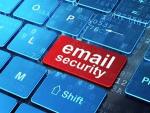 By Polar Systems
By Polar Systems
18-August-2016
Downloading malicious email attachments has become the leading way to infect end-user computers and networks with malware. Even if your company is running a quality anti-virus program and staying current on updates, you are still at risk. It really becomes up to the end user, to make their own decisions on what is risky, and what is safe to open.
Here are a few examples of email Security best Practices end-users should follow:
Prevent virus outbreaks and spam
Viruses are often spread through e-mail. You can greatly reduce the spread of e-mail viruses by using antivirus software, opening e-mail only from trusted sources, opening only attachments you’re expecting, and scanning attached files with antivirus software before opening them.
Spam is loosely defined as unsolicited bulk e-mail and loosely correlates to the junk mail that turns up in your home mailbox. But spam represents more than unwanted clutter. It clogs e-mail accounts—and networks and servers—while trying to sell products, spread jokes, or propagate Internet hoaxes.
Reduce the amount of spam you receive by being cautious where you post your e-mail address. Avoid publishing your e-mail address on Web sites or submitting it to every site or organization that requests it.
Never forward chain messages, which often reveal coworkers’ and colleagues’ e-mail addresses to other parties. Use caution when accepting e-mail offers or agreeing to accept mailings from vendors; subscribe only to Web sites and newsletters you really need and consider creating a generic Gmail or Yahoo e-mail account for these subscriptions.
Don’t open unsolicited e-mail. If you accidentally open spam, don’t click links offering to unsubscribe or remove you from the mailing list unless the sender is a trusted vendor. Never provide your network credentials or personal information if requested.
Avoid phishing attacks
Phishing scams are designed to steal consumers’ personal information. They often use doctored and fraudulent e-mail messages to trick recipients into divulging private information, such as credit card numbers, account usernames, passwords, and even social security numbers.
Online banking and e-commerce are generally safe, but you should always be careful about divulging personal and corporate information over the Internet. Phishing messages often boast real logos and appear to have come from the actual organization, but those messages are frequently nothing more than copyright infringements and faked addresses. If you suspect a message possesses any credibility, you are much safer calling the company directly—preferably at a telephone number printed on a paper statement or invoice—and talking to an authorized representative.
Be smart about handling attachments
E-mail attachments consume inordinate amounts of e-mail server space and network bandwidth and are often the culprits behind virus outbreaks—but they’re often the easiest way to transfer files. Just be sure to follow these guidelines when e-mailing attachments:
- Don’t attach large files to an e-mail; anything over one or two megabytes shouldn’t be sent via e-mail.
- Limit the number of files you attach to a message to five or fewer.
- Save attachments to your hard drive and then delete the e-mail message containing the attachment.
- Don’t open unexpected attachments or those sent by unknown parties.
- Always scan files with an antivirus program before opening an attachment. Never click an attachment without first confirming that it’s virus-free.
- Don’t annoy recipients by forwarding attachments they can’t access. If an attachment requires a new or less-common application, say so in your message.
Don’t include sensitive information
Don’t make the mistake of thinking your e-mails are private. They’re not. Think of them as postcards. You should never include any information in an e-mail that you wouldn’t want published on the front page of your local newspaper. In other words, never send confidential, proprietary, sensitive, personal, or classified information through e-mail. You should also refrain from making inflammatory, emotionally charged comments in e-mail.
If you would like further information around this subject, or if you have questions or concerns about your current anti-virus software Contact Us (link sends e-mail)at 503-775-4410

